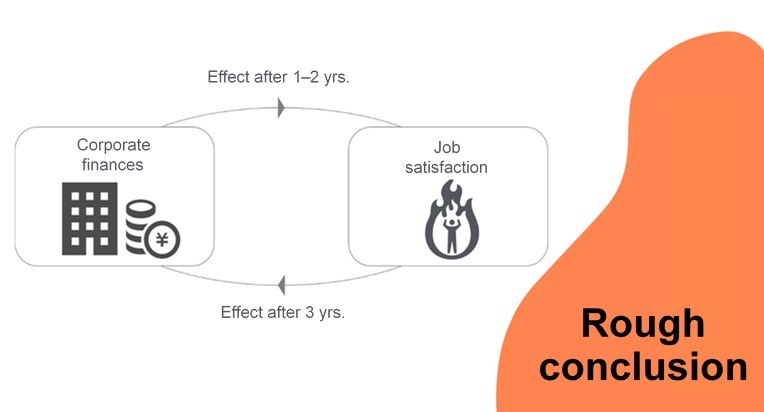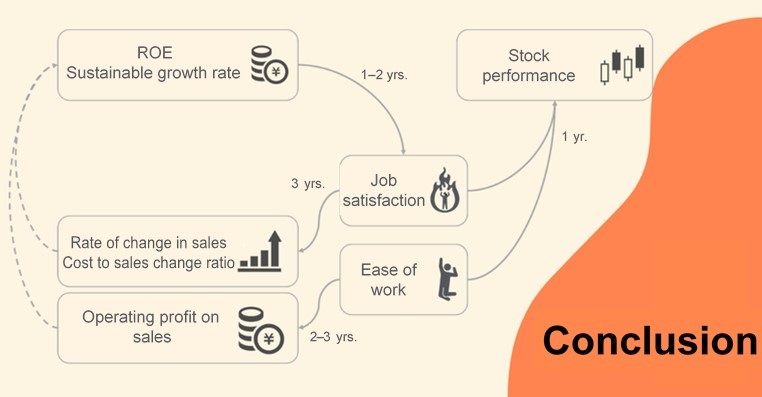Which should companies prioritize: job satisfaction, ease of work, or work performance?
Haruki Ohsawa, CEO of OpenWork Inc., provides commentary in a three-part series of articles on a paper regarding research on the relationship between job satisfaction, ease of work, and corporate performance.
In today’s column, Part 1 of a three-part series, we present the HR industry’s “chicken and egg” debate.
My name is Haruki Ohsawa, and I’m the CEO of OpenWork, a company that provides a job market platform for job seekers that offers more than 11 million word-of-mouth posts and evaluation scores.
Here are a couple of questions that are sometimes discussed in the HR industry.
Does increased business performance lead to higher job satisfaction?
Does greater job satisfaction lead to an increase in business performance?
In today’s column, I’d like to introduce a research paper that takes a scientific approach to the causality dilemma (the chicken-and-egg debate).
Here’s the link to the paper (in Japanese) that I’ll be introducing:
The Relationship between Job Satisfaction and Ease of Working Using Employee Word-of-Mouth Feedback and Company Performance (Hironori Nishiie and Tomoharu Nagao, 2021), which was published in Volume 19 (2021) of the Journal of the Japanese Association of Financial Econometrics and Engineering.
I recommend this for those who would like to read the original paper.
If, however, you don’t have the time to read the original paper, I would like to say that there was no end to the chicken-and-egg debate. Here it is expressed in visual terms.

And if we provide a little more explanation, it looks like this.

According to the findings, improvements in job satisfaction and ease of work have a slow-acting positive impact on corporate growth and profitability with effects emerging after two to three years.
Additionally, the findings also indicated that a company’s sustainable growth rate (the ratio of how much a company’s profits go to internal investment) leads to an improvement in job satisfaction after one year.
I will discuss the paper in a little more detail in the next installment.
This article was published with the permission of Haruki Ohsawa of OpenWork. It has been partially modified from its original format.
The original article (in Japanese) can be viewed here.
Reference:
・Haruki Ohsawa note (in Japanese) “Which comes first in contributing to raising corporate value: work performance or job satisfaction? An AI analysis of more than 11 million employee word-of-mouth company reviews”
・OpenWork is a job and recruitment information platform that utilizes one of Japan’s largest databases of employee reviews
・OpenWork Recruiting is a recruiting platform that provides a direct scouting service.

